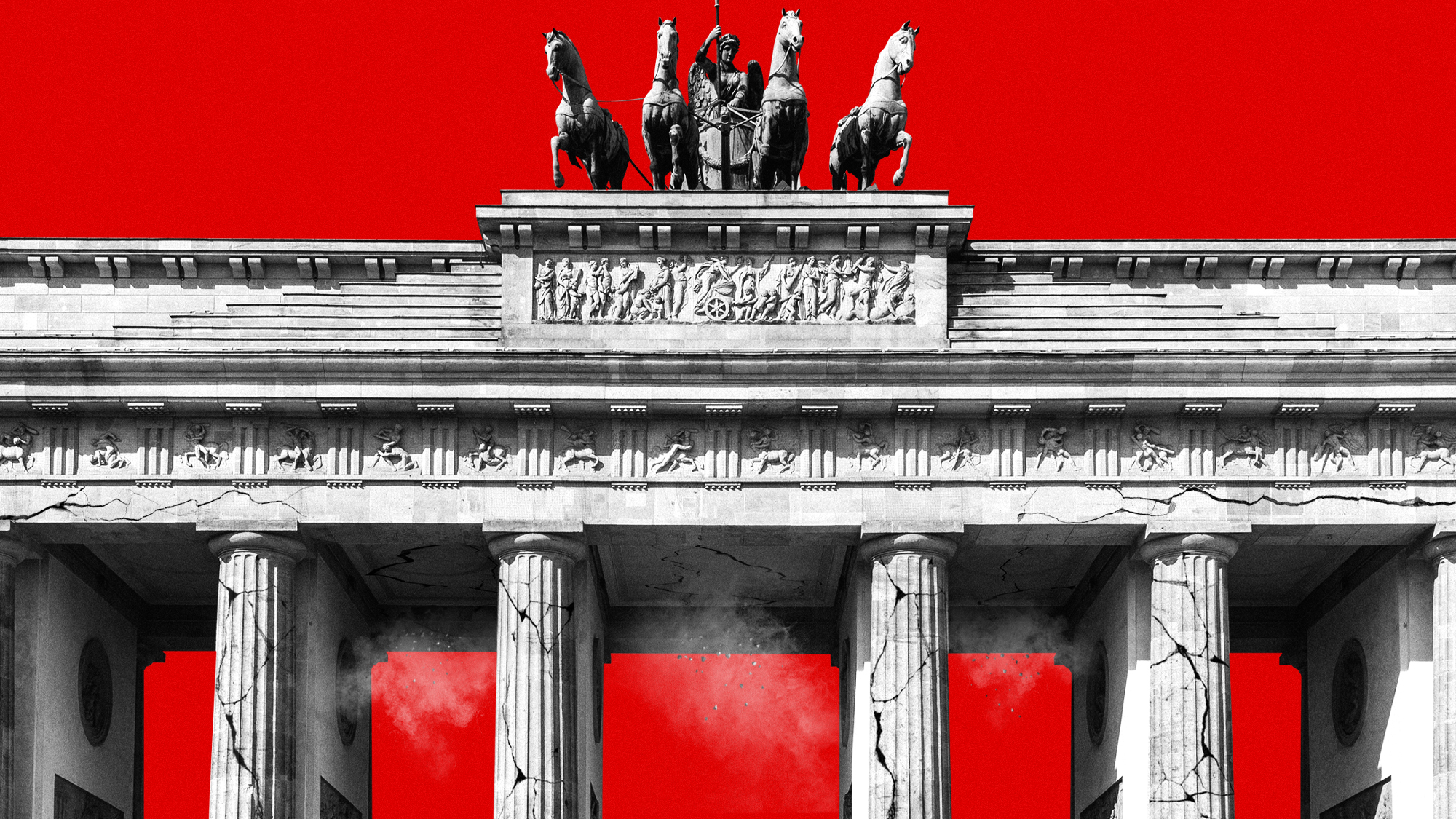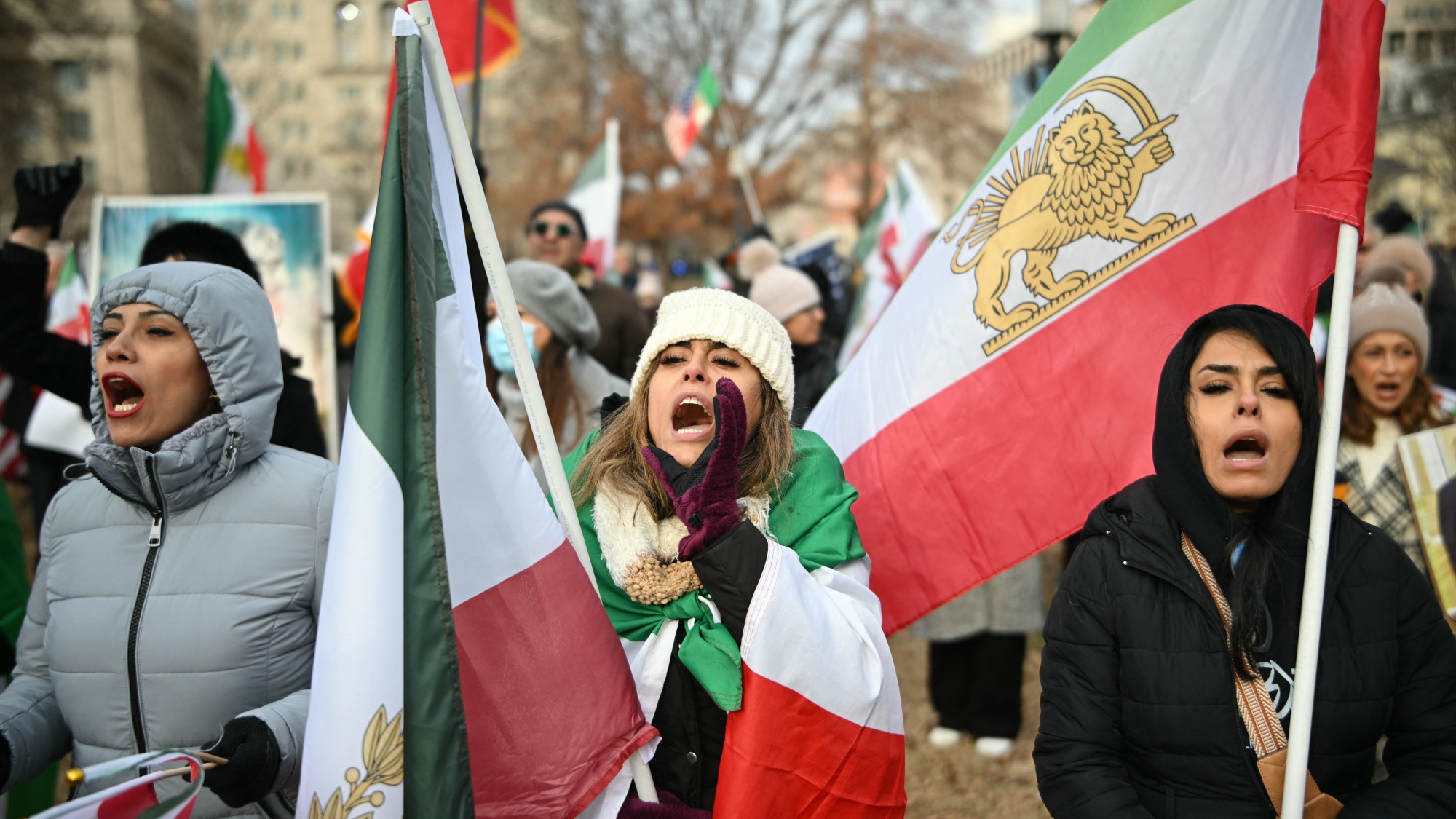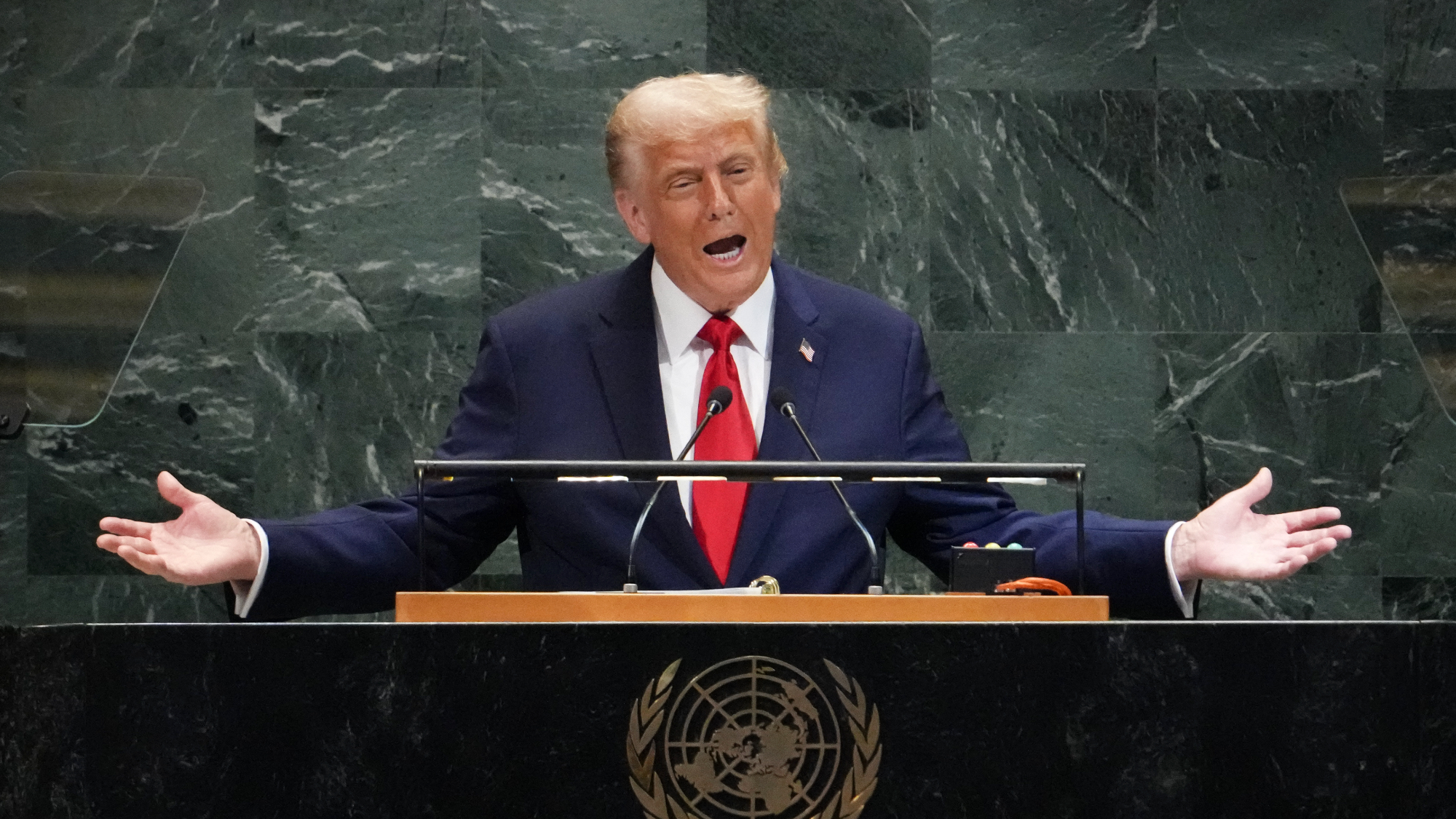Why has the German government collapsed?
The faltering economy triggers a crisis


A free daily email with the biggest news stories of the day – and the best features from TheWeek.com
You are now subscribed
Your newsletter sign-up was successful
Germany's coalition government has collapsed, a victim of the country's stagnant economy and infighting among the coalition partners.
Chancellor Olaf Scholz said Thursday he will "lead the country with a minority government," said The Associated Press. His coalition fell apart after he fired Christian Lindner, leader of the Free Democratic Party, as his government's finance minister. Scholz said he does not intend to call new parliamentary elections until Jan. 15 — resisting calls for immediate snap elections. "The citizens will soon have the opportunity to decide anew how to proceed," Scholz added.
Scholz's Social Democrats had previously partnered with Lindner's FDP and the Green Party to govern Germany. The coalition fell apart after Lindner released an 18-page paper calling for a "fundamental economic overhaul" to jumpstart the country's slowing economy and close the government's $2.6 trillion budget gap, reforms that would cut social service programs and pull back from Germany's climate goals, said The New York Times. Those are demands "his coalition partners are highly unlikely to accept." Without such changes, Lindner said, his party would leave the coalition. "The situation as it is now cannot continue," Lindner said.
The Week
Escape your echo chamber. Get the facts behind the news, plus analysis from multiple perspectives.

Sign up for The Week's Free Newsletters
From our morning news briefing to a weekly Good News Newsletter, get the best of The Week delivered directly to your inbox.
From our morning news briefing to a weekly Good News Newsletter, get the best of The Week delivered directly to your inbox.
What did the commentators say?
Europe's largest economy "has slowly but steadily sunk into crisis," said The Financial Times. Three big drivers of the economy — the automotive, chemical and engineering sectors — "are all in a slump at the same time," making it likely that the annual gross domestic product will shrink for the second year in a row. That's the "most pronounced downturn" in Germany's postwar history, said Robin Winkler, Deutsche Bank's Germany chief economist. This has left Scholz's coalition "ever more paralyzed" about how to proceed, said the Times: "Light on the horizon is hard to detect."
"Volkswagen's woes mirror Germany's," Hanna Ziady said at CNN. The company recently said it could close factories and cut thousands of jobs. "Things cannot continue as they are now," chief financial officer Arno Antlitz said to reporters. Both Volkswagen and its home country are challenged by "high labor costs, weak productivity and competition from China," Ziady said. Those factors, alongside high taxes and an aging population, will require dramatic action. But arguments among the "fractious" three-way coalition has "left the government lacking a clear vision for the country."
What next?
A coalition collapse could be "disastrous for all three coalition parties," said Reuters. SDP and the Greens have lost support since the 2021 election, and the FDP "could be ejected from parliament altogether." But the dispute involves fundamental differences: FDP wants budget cuts, while the other two parties "agree that targeted government spending is needed to stimulate the economy," Reuters said.
"Germany needs to have an honest debate with itself," Jörn Fleck, the senior director of the Atlantic Council's Europe Center, said at the think tank's blog. But it is tough to know what happens next. A "slight majority" of Germans favored early elections even before the governing coalition fell apart. There is an opportunity, Fleck said. "A fresh start might be the next best chance for Europe's former powerhouse to find its footing."
A free daily email with the biggest news stories of the day – and the best features from TheWeek.com
Joel Mathis is a writer with 30 years of newspaper and online journalism experience. His work also regularly appears in National Geographic and The Kansas City Star. His awards include best online commentary at the Online News Association and (twice) at the City and Regional Magazine Association.
-
 Sepsis ‘breakthrough’: the world’s first targeted treatment?
Sepsis ‘breakthrough’: the world’s first targeted treatment?The Explainer New drug could reverse effects of sepsis, rather than trying to treat infection with antibiotics
-
 James Van Der Beek obituary: fresh-faced Dawson’s Creek star
James Van Der Beek obituary: fresh-faced Dawson’s Creek starIn The Spotlight Van Der Beek fronted one of the most successful teen dramas of the 90s – but his Dawson fame proved a double-edged sword
-
 Is Andrew’s arrest the end for the monarchy?
Is Andrew’s arrest the end for the monarchy?Today's Big Question The King has distanced the royal family from his disgraced brother but critics claim a ‘fit of revolutionary disgust’ could still wipe them out
-
 Vietnam’s ‘balancing act’ with the US, China and Europe
Vietnam’s ‘balancing act’ with the US, China and EuropeIn the Spotlight Despite decades of ‘steadily improving relations’, Hanoi is still ‘deeply suspicious’ of the US as it tries to ‘diversify’ its options
-
 The ‘mad king’: has Trump finally lost it?
The ‘mad king’: has Trump finally lost it?Talking Point Rambling speeches, wind turbine obsession, and an ‘unhinged’ letter to Norway’s prime minister have caused concern whether the rest of his term is ‘sustainable’
-
 Does standing up to Trump help world leaders at home?
Does standing up to Trump help world leaders at home?Today’s Big Question Mark Carney’s approval ratings have ‘soared to new highs’ following his Davos speech but other world leaders may not benefit in the same way
-
 Le Pen back in the dock: the trial that’s shaking France
Le Pen back in the dock: the trial that’s shaking FranceIn the Spotlight Appealing her four-year conviction for embezzlement, the Rassemblement National leader faces an uncertain political future, whatever the result
-
 EU-Mercosur mega trade deal: 25 years in the making
EU-Mercosur mega trade deal: 25 years in the makingThe Explainer Despite opposition from France and Ireland among others, the ‘significant’ agreement with the South American bloc is set to finally go ahead
-
 Maduro’s capture: two hours that shook the world
Maduro’s capture: two hours that shook the worldTalking Point Evoking memories of the US assault on Panama in 1989, the manoeuvre is being described as the fastest regime change in history
-
 Unrest in Iran: how the latest protests spread like wildfire
Unrest in Iran: how the latest protests spread like wildfireIn the Spotlight Deep-rooted discontent at the country’s ‘entire regime’ and economic concerns have sparked widespread protest far beyond Tehran
-
 Trump pulls US from key climate pact, other bodies
Trump pulls US from key climate pact, other bodiesSpeed Read The White House removed dozens of organizations from US participation
